Who is Responsible for Slip and Fall Accidents in Public Places?
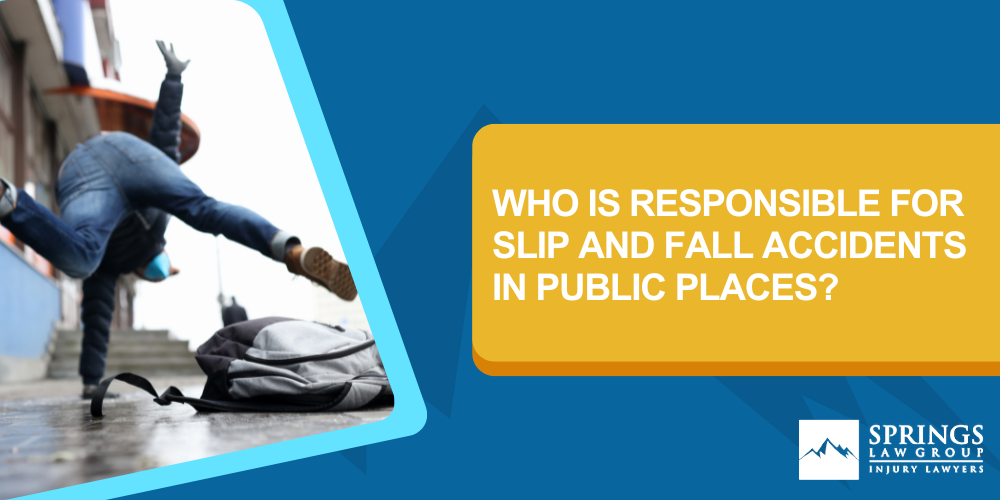
Slip and fall accidents can happen to anyone, anywhere, at any time. They are a common occurrence in public places such as shopping malls, restaurants, and grocery stores. While these accidents may seem minor at first, they can result in serious injuries and even permanent disabilities.
The question is, who is responsible for these accidents?
In this blog post, we’ll take a closer look at the legal concept of premises liability and identify the responsible party in slip and fall accidents. We’ll also discuss the importance of seeking legal advice and provide a call-to-action for anyone who has been injured in a slip and fall accident.
If you or a loved one has been involved in a slip and fall accident, don’t hesitate to contact Springs Law Group for a free consultation. Our team of experienced Colorado Springs slip and fall lawyers is ready to fight for your rights and help you get the compensation you deserve.
The Legal Concept of Premises Liability
Premises liability is a legal concept that holds property owners responsible for injuries that occur on their premises. This means that if you are injured on someone else’s property due to their negligence, you may be able to seek compensation for your injuries, medical bills, and other damages.
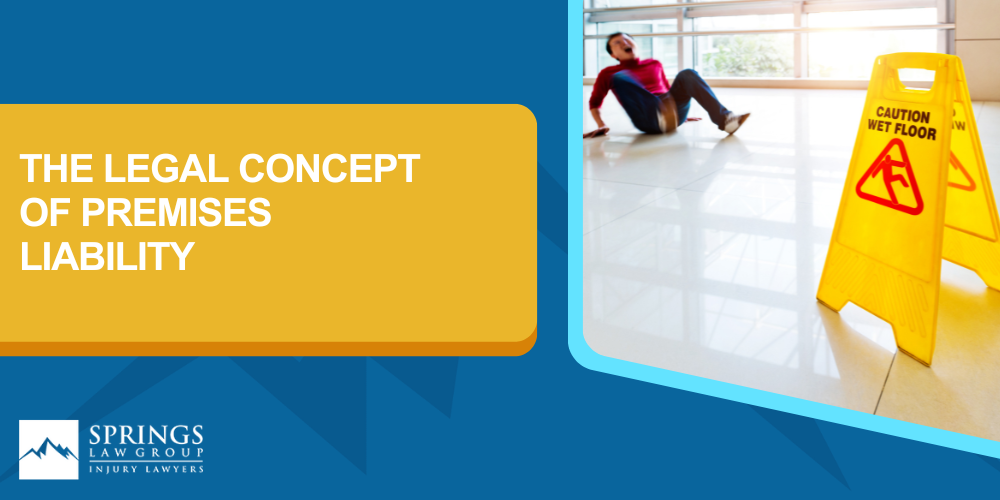
There are different types of premises liability cases, including slip and fall accidents, inadequate security, and animal attacks. In order to determine liability, it’s important to establish whether the property owner breached their duty of care towards the injured party.
If you believe you have a premises liability case, it’s important to consult with a Colorado Springs premises liability lawyer who can help you navigate the legal process.
Identifying the Responsible Party in Slip and Fall Accidents
Slip and fall accidents can happen anywhere, but when they occur on someone else’s property, it can be challenging to determine who is responsible. In general, the property owner or manager may be held liable for slip and fall accidents that occur on their premises.
However, this is not always the case, as other parties may be involved. For example, if the property is leased to a tenant, the tenant may be responsible for maintaining the premises and preventing slip and fall accidents.
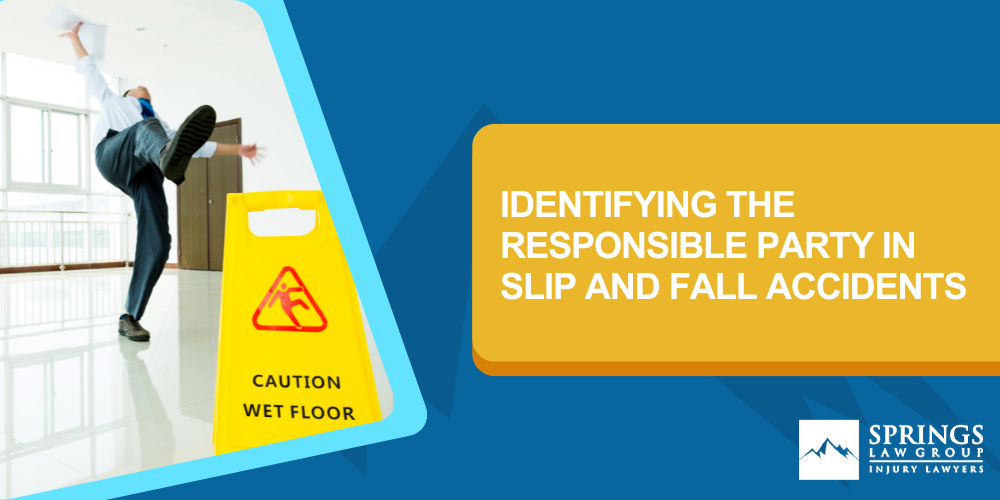
Several factors must be considered to identify the responsible party in a slip and fall accident. These include the cause of the accident, the condition of the property, and the actions of the parties involved. For instance, if the accident was caused by a spill on the floor and the property owner knew about it but failed to clean it up or warn visitors, they may be held liable.
It’s important to note that in some cases, multiple parties may be responsible for a slip and fall accident. For example, if a contractor was hired to repair a damaged walkway but failed to do so correctly, both the property owner and the contractor may be held responsible.
Duty of Care
Duty of care is a legal concept that requires property owners to take reasonable steps to ensure the safety of visitors to their property. In the case of slip and fall accidents, duty of care requires property owners to regularly inspect their premises for potential hazards—such as wet floors, loose tiles, or uneven surfaces—and take appropriate action to address them.
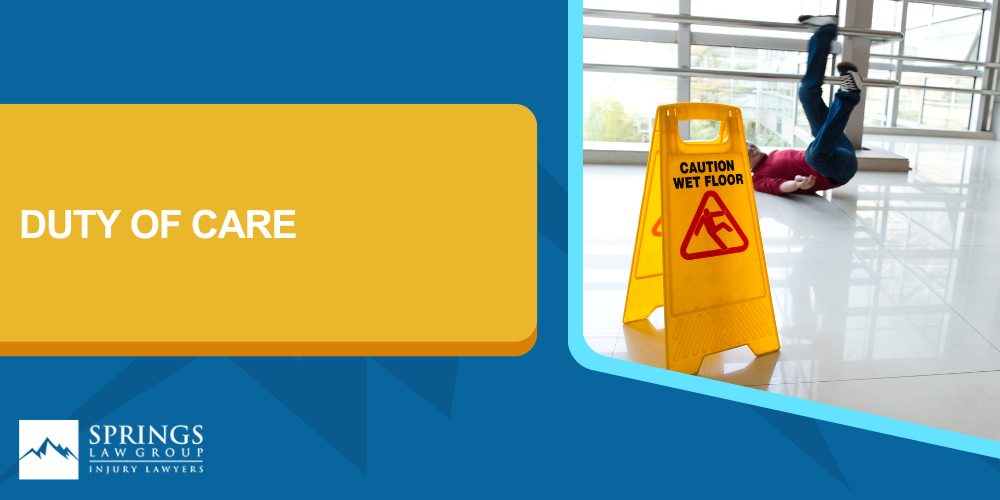
Failure to fulfill this duty of care can result in liability for any injuries resulting from their negligence. If you’ve been injured in a slip and fall accident due to someone else’s failure to fulfill their duty of care, you may be entitled to compensation for your injuries and other damages.
Contributory Negligence
Contributory negligence is a legal concept that can impact slip and fall cases. It refers to the idea that if the injured party contributed to their own injuries through their own negligence, they might be barred from recovering damages.
For example, if a person was texting while walking and failed to notice a warning sign about a wet floor and then fell, they may be found to have contributed to their own injuries. This means that the property owner may not be held liable for the full extent of the damages.
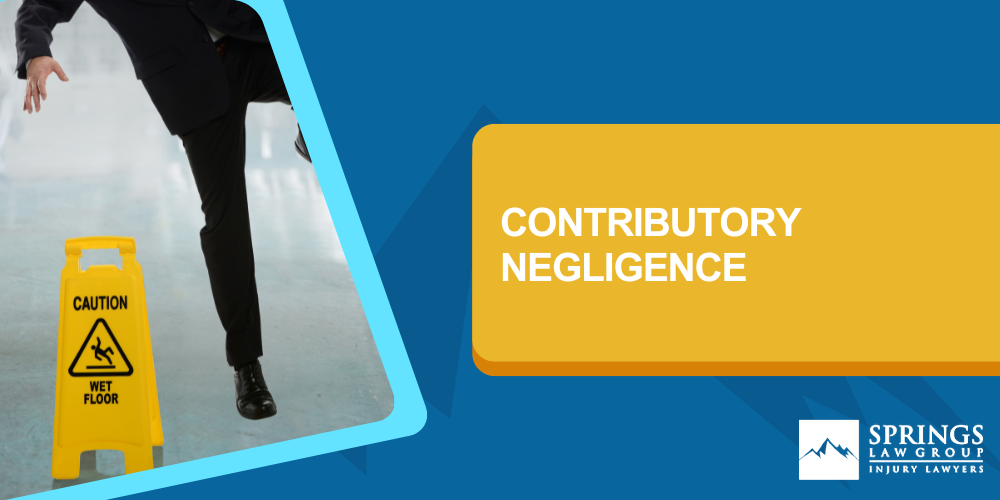
Comparative negligence is the legal standard in Colorado, which means that even if the injured party is partially responsible for their own injuries, they may still be able to recover damages. However, the amount of damages awarded may be reduced by the percentage of fault assigned to the injured party.
Steps to Take After a Slip and Fall Accident
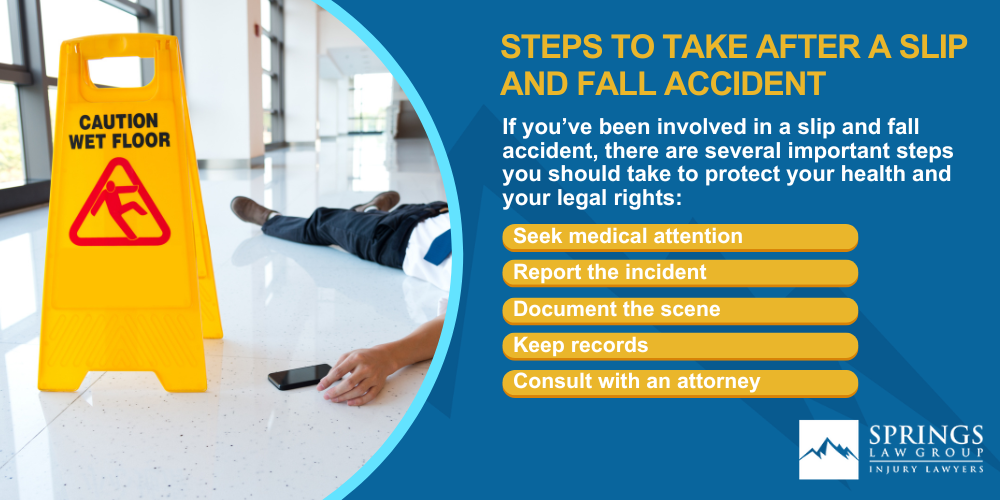
If you’ve been involved in a slip and fall accident, there are several important steps you should take to protect your health and your legal rights:
- Seek medical attention. Your health and safety should be your top priority. Seek medical attention right away, even if you feel okay. Some injuries may not show up right away, and it’s important to get a proper diagnosis and treatment.
- Report the incident. Report the slip and fall accident to the property owner or manager as soon as possible. Ask for a written report and keep a copy for your records.
Document the scene. Take photos or video of the accident scene, including any hazards or conditions that may have contributed to the accident. Also, collect contact information from any witnesses who saw what happened. - Keep records. Keep detailed records of all medical treatments, expenses, and any other damages you may have suffered as a result of the slip and fall accident.
- Consult with an attorney. Contact a Colorado Springs slip and fall lawyer to discuss your legal options. An attorney can help you understand your rights and take the necessary steps to seek compensation for your injuries.
Remember, the steps you take after a slip and fall accident can impact your ability to recover damages later on. By taking these steps, you can protect your health and your legal rights.
If you’ve been injured in a slip and fall accident, contact Springs Law Group today for a free consultation with one of our experienced attorneys.
